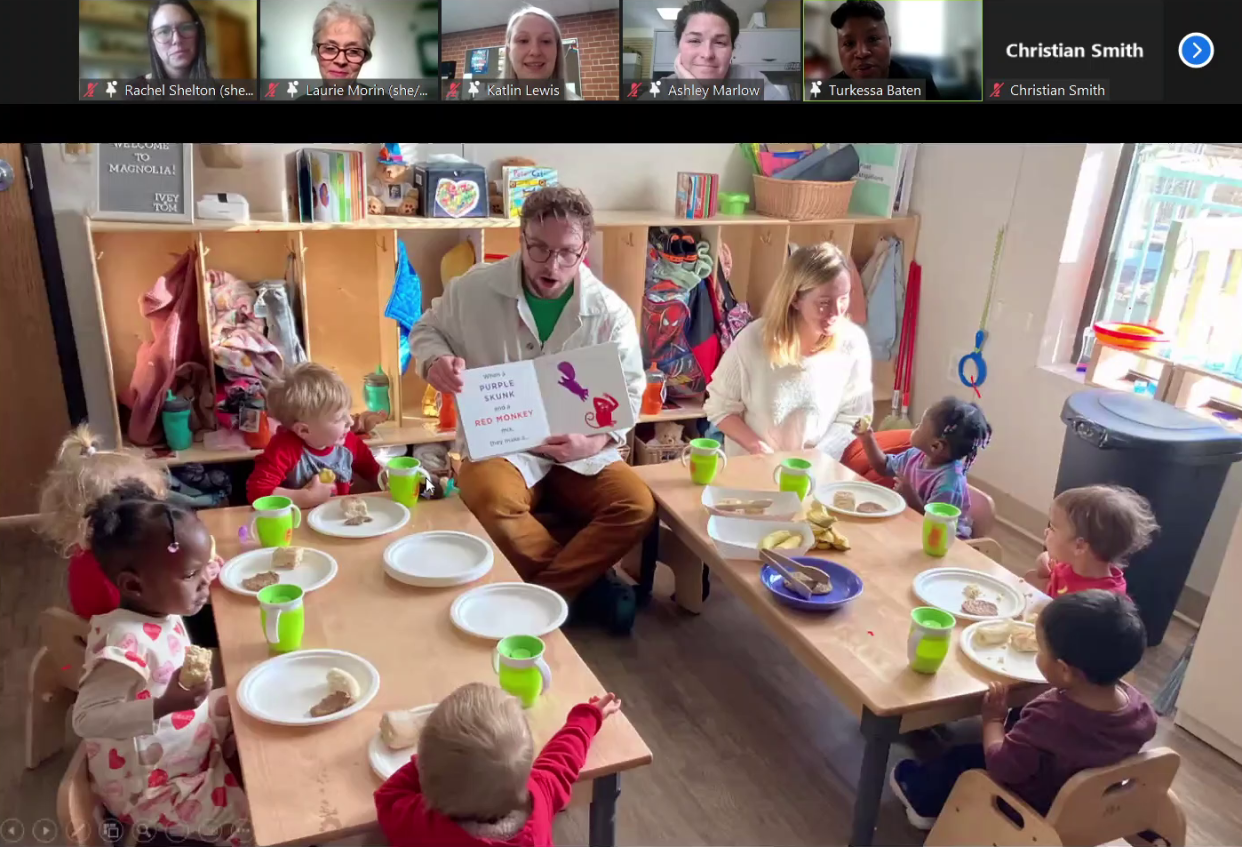'Collapse' of Buncombe child care industry? Businesses, leaders call for continuing state funding

Statewide stabilization grants kept early child care businesses open during the COVID-19 pandemic, but with grants set to end in 2023, local business and child care leaders are warning of a collapse of the industry.
The North Carolina Early Child Care Stabilization Grants, which used funds from the federal American Rescue Plan Act, started in October 2021 and have provided around $44.5 million in funding to keep Western North Carolina child care businesses afloat and able to compete in the tight labor market, according to a presentation given at a Feb. 17 event organized by the Children First/Communities In Schools of Buncombe County.
Funding was extended to December 2023 by the North Carolina Department of Health and Human Services, but speakers at the event called for continuing state support of early child care even after the $805 million allocated for the grants dry up. According to a NCDHHC dashboard, around $742.8 million of the funds have been distributed so far.
"The writing is on the wall," Ashley Marlow, director of Little Blessings Learning Center in Transylvania County, said at the event. "The grants kept us going, and the thoughts of not having them in an already difficult time almost keeps us from wanting to keep going."
Related:Could home-based child care remedy high cost? 'Confusing, rigid' policy at issue: report
Superintendent search: Asheville school board selects firm, $30K cost with July 1 goal
The rising costs of everything, from food to utility bills to wages, means that many child care centers and family child care businesses will be forced to close their doors. Even before the pandemic, Blue Ridge Partnership for Children Executive Director Jennifer Simpson said there was a child care workforce crisis, and the pandemic only made conditions worse.
According to Simpson's presentation, most child care workers make $12 an hour or less in North Carolina, often without benefits, forcing many to look outside the industry for livable wages.
On the other hand, North Carolina child care costs are now on average more expensive than college, her presentation said, and even with government programs, parents pay around 68% of child care costs in North Carolina.
Both Kit Cramer, President and CEO of the Asheville Area Chamber of Commerce, and Nathan Ramsey, Executive Director of Land of Sky Regional Council and the Director of the Mountain Area Workforce Development Board, said child care is important for more than just early childhood development, though research suggests these ages are the most important to a child's development.
"Our K-12 schools, our public schools, are critically important, our community colleges are important, our universities are important, but if you look at anywhere in the education continuum and where you get the biggest bang for your buck as a taxpayer, its investing in early childhood education," Ramsey said.
Child care is also essential to a productive workforce, they said, because the labor market is shrinking as the "Baby Boomer" generation begins to retire. Buncombe County, Ramsey noted, has the lowest unemployment rate in the state at 2.5%, meaning that the business community needs to find ways to grow the labor market, and freeing up parents through early child care is a necessary way forward.
Related:Pre-K expansion? EMS facility? Buncombe considers acquisition of Asheville Primary School
Education News:Driven by Asheville Primary's closure, a new public Montessori school is headed downtown
Each speaker said the state needs to view child care as critical infrastructure, just like public schools, roads and libraries.
Sheila Hoyle, who has served as executive director of Southwestern Child Development Commission since 1987, offered two short-term suggestions for the state that she believes are necessary to sustain the child care industry from going "over a cliff."
Support the child care workforce through continued Compensation Support Grants, which must go toward either bonuses for staff or increasing pay and benefits.
Support child care operating costs equitably by changing the subsidy rate structure and adding a market rate floor.
Related:Buncombe County's lobbyists will push for McCormick Field, education funding from state
Education News:'As a Black man, I'm appalled': Report shows gap between Black, white student achievement
The Child Care Subsidy program uses state and federal dollars to partially pay the child care costs of income-eligible families. Hoyle and other speakers said the formula used to calculate the subsidy is outdated and needs to be updated to reflect current child care costs, and the addition of a market rate floor would stop rates from fluctuating so wildly between counties.
Christian Smith is the general assignment reporter for the Asheville Citizen-Times. Questions or comments? Contact him at RCSmith@gannett.com or 828-274-2222. Please help support this type of journalism with a subscription to the Citizen Times.
This article originally appeared on Asheville Citizen Times: Childcare in Asheville area needs state funding: local leaders

